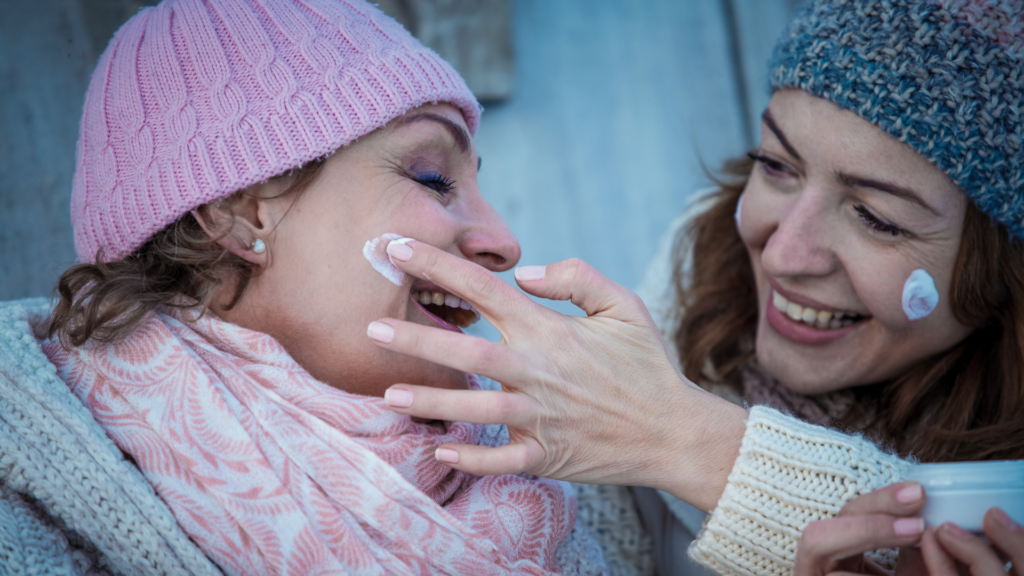
The winter season can be fun if you do not have to face the health issues that it brings. Cold weather can have a significant impact on some people’s skin, leading to various skin problems. Winter weather can also worsen existing skin problems due to the harsh environmental conditions and changes in individual skincare routines. The drop in temperature leads to lower humidity levels, causing the air to become dry. This dry air, combined with indoor heating systems, can strip the skin of its natural moisture, leading to dehydration.
As a result, the skin may become dry, flaky, and more prone to irritation. Also, people tend to take hot showers during the colder months, which can further dehydrate the skin and strip away its protective oils. The use of heavy clothing and room heaters can also contribute to overheating and dryness, leading to skin problems. In winters. individuals also neglect their skincare routine or use products that are not suitable, aggravating existing skin issues or causing new ones. Here are some common skin problems that people may experience during the winter:
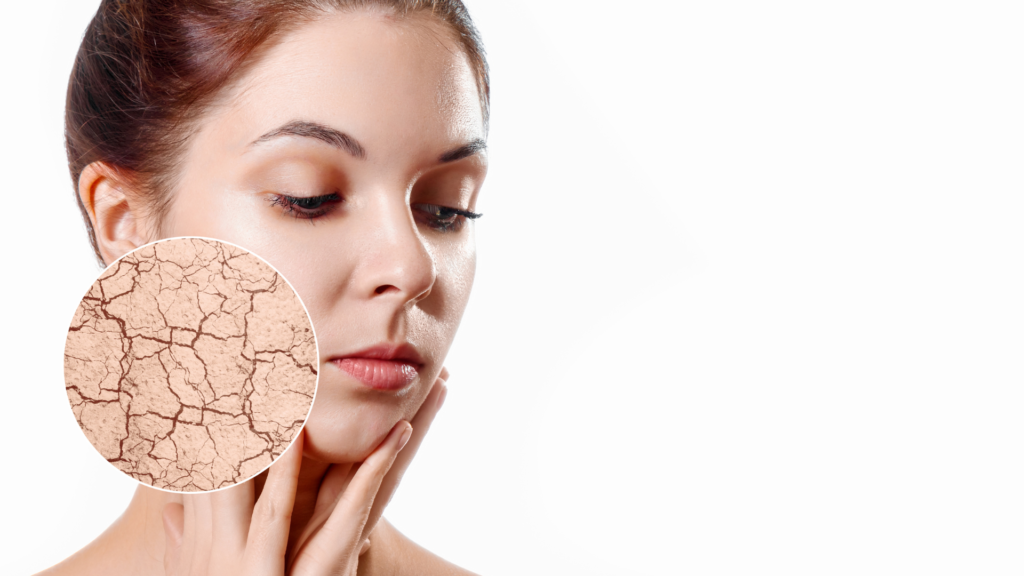
- Dry Skin: Dry skin is a common dermatological concern due to cold and dry conditions. Cold air lacks the moisture needed to keep the skin hydrated, leading to a range of symptoms such as tightness, flakiness, and a generally rough texture. The harsh winter winds can further strip the skin of its natural oils, leaving it susceptible to irritation and discomfort. Room heaters also contribute to this by reducing the moisture in the air. Dry skin can become flaky and may even peel, especially in areas like the hands, elbows, and knees.
Dryness can lead to itching, which may be exacerbated by hot showers or baths. It’s important to take care of hydration, use a humidifier, and avoid hot water baths. Massage with warm oil like sesame oil, olive oil, or almond oil regularly in winter before a bath can be extremely helpful in keeping skin healthy in winter.
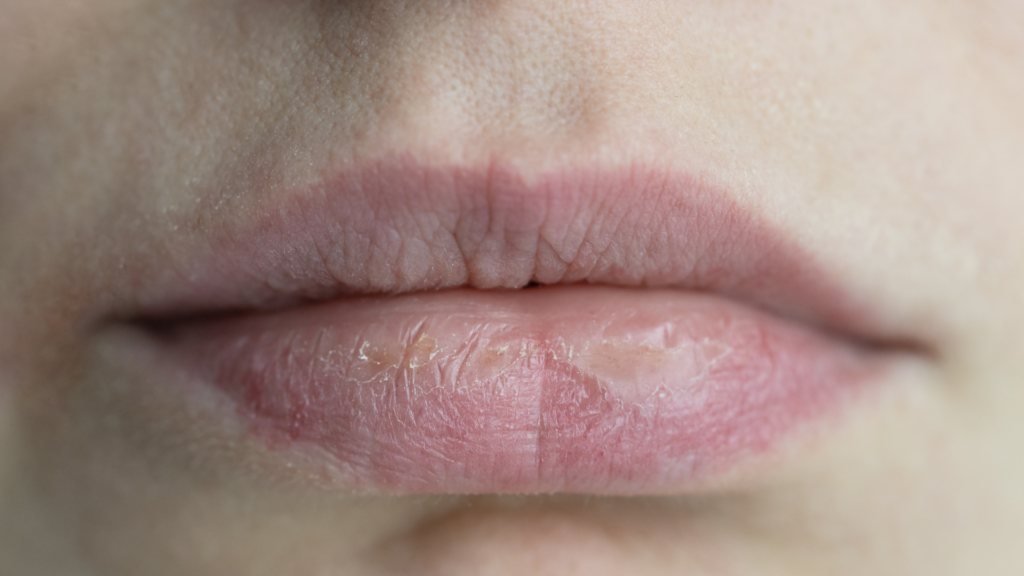
- Chapped Lips: In the harsh winter months, many individuals grapple with the discomfort of chapped lips, a common and often irritating ailment. Frequent exposure to cold winds can strip away the natural oils that protect the skin, intensifying the likelihood of chapping. Lips have a thin layer of skin and unlike other areas of the body, they can’t be mostly covered.
To combat this seasonal challenge, individuals often turn to lip balms and moisturizing products containing naturally moisturizing ingredients like beeswax, shea butter, or coconut oil. Try mixing honey with a bit of Vaseline and apply it to your lips for a natural lip balm. Adopting good hydration habits, such as drinking ample water and avoiding excessive licking of the lips, can contribute to maintaining soft and supple lips during the winter season.
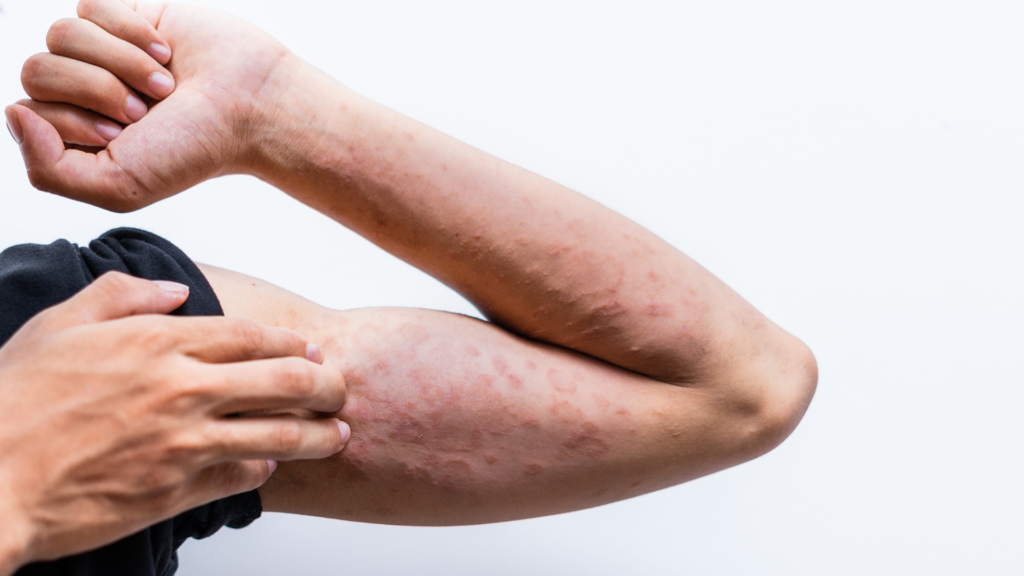
- Eczema and Dermatitis Flare-Ups: People with existing skin conditions like eczema or dermatitis may experience flare-ups during winter due to the dry air and exposure to certain fabrics. They may notice an escalation in redness, inflammation, and discomfort. If you are facing such a condition, it’s important to avoid synthetic fibers, especially the skin-touching layers.
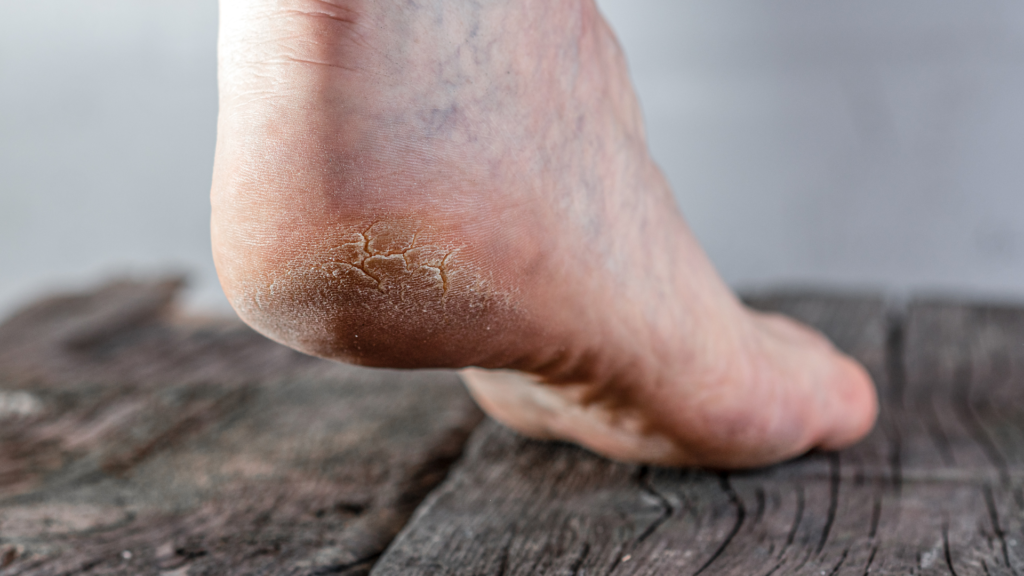
- Cracked Heels and Hands: Hands and feet do a lot of work for us, despite the weather conditions. In cold and dry weather, the skin on the hands and feet may become dry and cracked, leading to discomfort. Use moisturizing, gentle handwash instead of harsh, antibacterial soaps. Oiling and moisturizing every day may help in reducing the cracks. Soak your feet in warm water with a few drops of essential oil. Scrubbing gently and moisturizing with a thick cream or petroleum jelly may help. Additionally, wearing gloves and socks to protect the hands and feet from the cold can help maintain the skin’s moisture levels.
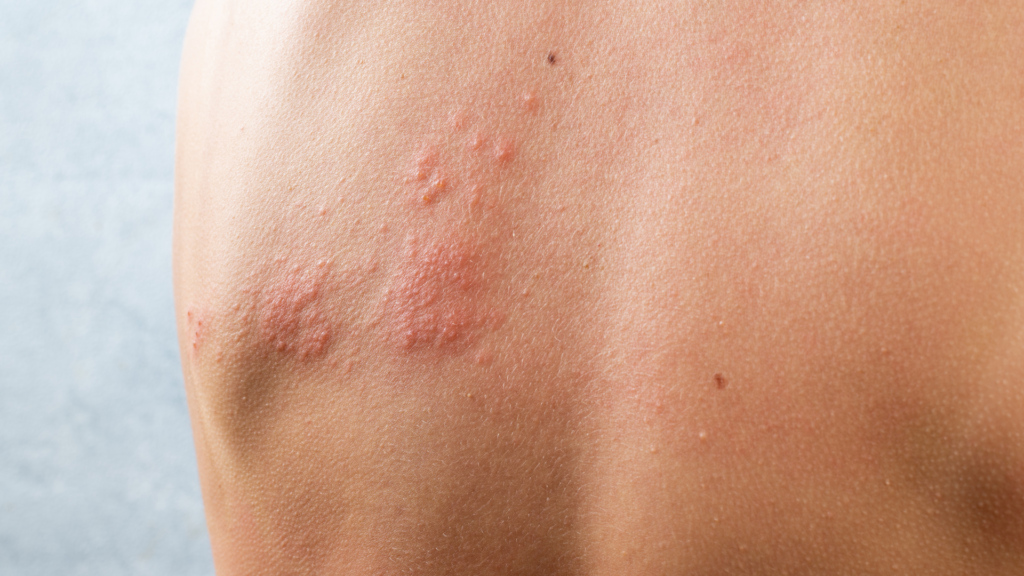
- Winter Rash or Cold urticaria: Cold urticaria is a type of physical allergy characterized by the development of hives or welts on the skin in response to exposure to cold temperatures. While this condition can occur throughout the year, it tends to be more prominent and problematic during the winter months when temperatures drop. Individuals with cold urticaria may experience symptoms such as red, itchy, and swollen skin after exposure to cold air, water, or contact with cold surfaces. It is crucial for individuals with cold urticaria to take preventive measures, such as wearing proper warm clothing and avoiding prolonged exposure to cold environments, to minimize the risk of triggering allergic reactions.
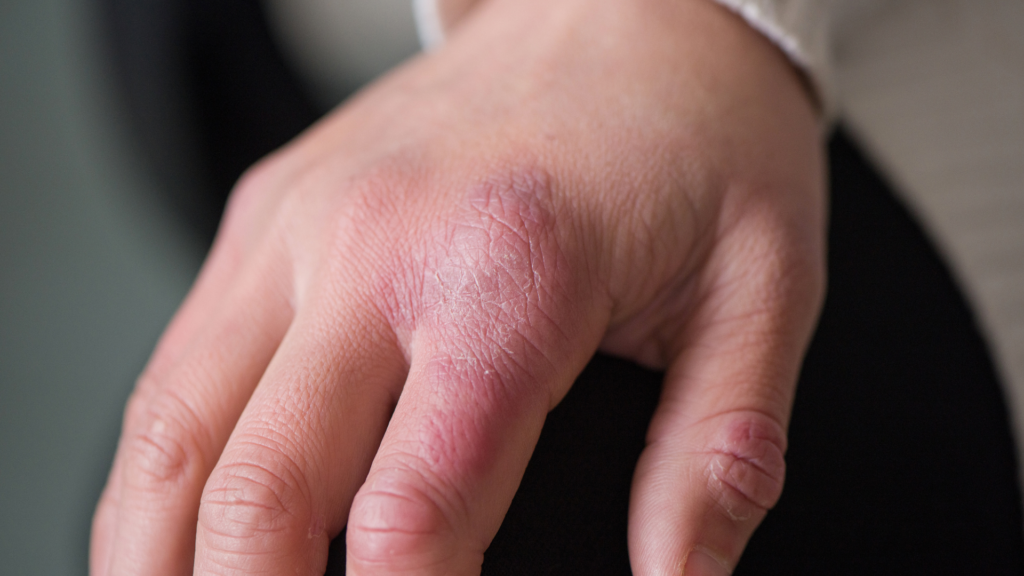
- Chilblains: It is also known as pernio or perniosis, are a skin condition that is typically seen in colder climates during the winter months. These small, itchy swellings on the skin result from an abnormal skin response to cold temperatures, particularly when exposed to sudden warmth. The condition typically affects extremities like fingers, toes, ears, and nose, causing redness, swelling, and an irritating burning sensation. Though not usually serious, chilblains can be a persistent nuisance for those susceptible to the cold. Prevention involves maintaining warmth through proper clothing and avoiding rapid temperature changes. Additionally, keeping extremities warm and dry and practicing good circulation habits can contribute to minimizing the risk of developing chilblains during the frosty winter season.
To keep skin healthy in winter it is crucial to adopt good skincare habits by using hydrating products, incorporating a humidifier indoors, and maintaining a consistent and appropriate skincare routine throughout the winter months. Hydration is key, so increasing water intake helps keep the skin moisturized from the inside out. Using natural oils like sesame oil, olive oil, or almond oil can provide an extra layer of hydration when applied topically.
Additionally, eating a balanced diet especially rich in omega-3 fatty acids, such as flaxseeds and walnuts, can contribute to skin health. Regular exfoliation with gentle, natural scrubs can help remove dry and dead skin cells, allowing moisturizers to penetrate more effectively. Humidifiers can add moisture to indoor environments, preventing excessive dryness.
Also, choosing skincare products with natural, unscented ingredients, such as aloe vera, chamomile, honey, and glycerine can soothe and nourish the skin without the harsh effects of some chemical-based alternatives. By adopting these natural remedies, individuals can maintain healthier skin during the challenging winter season.